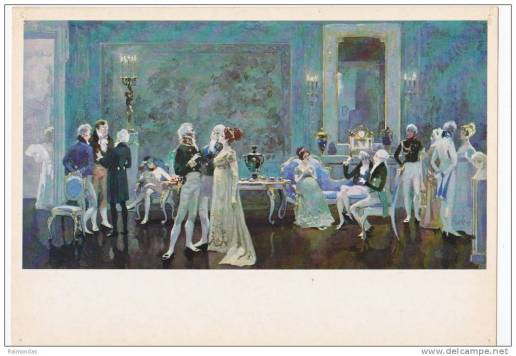What would you do if a fourth grader brought in War & Peace for their independent reading book?
This happened yesterday, and A.’s teacher came to me for advice.
“Well, we can’t tell her she can’t read it, so let’s help her see that it’s not a good fit for her,” I suggested.
I sat down with A. and asked her about her book choice. “All the other books in the town library are boring,” she said.
“Did you look at the Nutmeg (Connecticut’s state book award) nominees? I know there are some good books on the list.”
“They didn’t have any of those books, so the librarian told me I could look in the Young Adult section and my mom said it was okay.”
Since when is War & Peace kept in the Young Adult section, I thought to myself.
“We’ve talked about ways to choose a ‘just right’ book for a couple of years,” I reminded her. “Why don’t you read the first page to me so we can make sure you can read most of the words.” The five-finger rule is introduced in first grade.
She skipped past the introduction and two pages listing “Principle Characters” before she arrived at Chapter One. Where the first paragraph was written in French. She gave a little laugh and said, “I’ll skip that part.” She then went on to valiantly attempt the maze of Russian surnames.
At the bottom of the page she smiled at me and said, “I could read most of the words that weren’t in French.” She had missed six words, but at this point, it really wasn’t about counting miscues.
“What was happening on this page?” I asked her.
“Well, in the first paragraph, the lady has a cough, but I’m not really sure what was going on in the second paragraph,” she explained.
“A.,” I explained gently, “I’m so proud of you that you want to challenge yourself as a reader, and War & Peace is a challenging book.” Thinking of Teri Lesesne’s Reading Ladders, I continued, “But maybe it should be a book you work toward reading. Why be frustrated reading it now when we can find books that you like that will get you ready to read War & Peace someday.”
She agreed this might be a better idea. I wanted this to feel like her decision, though, so I suggested that she read more of the book over the weekend and that we could talk again on Monday.
I really don’t want to tell her she can’t read this book. But I also don’t want her to miss all the wonderful books that she should be reading in fourth grade. I want her to, in the words of Frank Serafini, assume “an identity as a reader” by reading books like Echo, by Pam Muñoz Ryan, or The War that Saved My Life, by Kimberly Brubaker Bradley. Both of these books are much better choices for her, and they both have plenty of war and peace.

Thank you to Stacey, Tara, Dana, Betsy, Anna, Beth, Kathleen, and Deb for this space for teachers and others to share their stories each Tuesday throughout the year and every day during the month of March. Be sure to visit Two Writing Teachers to read more Slice of Life posts.


I love how you validated your student as a reader but also guided her toward more appropriate choices while maintaining her power in the selection process. I love this line–“I’m so proud of you that you want to challenge yourself as a reader.” Well done!
LikeLiked by 1 person
You handled this situation with grace and honored her as a person who can make choices. I think I might’ve responded differently like saying, “Are you crazy?” I’m glad you reminded me that my initial reaction may not be in the best interest of the child.
LikeLike
You’ve used such wisdom and respect for this young reader, Catherine. You know that I taught middle-school-aged students, and sometimes even they came in with a book like War & Peace. Often it was from a parent suggestion, wanting them to read a “classic”. That made it harder to move the student to a better choice “right now”. Using the ‘ladder’ idea in your words sounded wonderful. I hope you’ll follow up with us after Monday, and love that ending!
LikeLike
I love the way you captured the interaction between you and your reader. I’d much rather read Echo, and I’m pretty sure I could decode the French! Great work and preserving her sense of a reading self!
LikeLiked by 1 person
Beautifully handled, Catherine! You allowed this child to own the decision in the end – fantastic!
LikeLike
I love how you handled this. I agree – I don’t want to be the person to say it’s not a good fit. Way to go forward with compassion and grace!
LikeLike
So wise, ” I wanted this to feel like her decision”! It is the gut instinct to say “no” but you empowered your student to ponder, “why not”. I have begun reading Katherine Applegate’s new book, Crenshaw, to my third graders. As we decipher its complexities together we also discover what would happen if they read it independently. They absolutely get why they would miss most of the story!
LikeLike
I love the way you worked with the student to keep things in her court. Makes me happy to be slicing with friends who honor the autonomy of our students. And Echo and The War that Saved My Life are both favorites of mine from this past year. Keep us posted next week. We want the “rest of the story.”
LikeLike